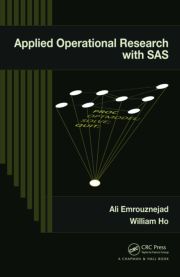Submission details to this SI: Call for papers
Call for papers
In an era of increasing global uncertainties, frontier technologies, business analytics, and optimization are vital for enhancing decision-making, operational efficiency, and resilience across public and private sectors. Advances in artificial intelligence (AI), machine learning, blockchain, the Internet of Things (IoT), digital twins, and optimization techniques are transforming how organizations and governments anticipate disruptions, optimize resources, and ensure sustainable supply chains. This special issue seeks interdisciplinary research integrating quantitative models, advanced analytics, optimization, and emerging technologies to tackle critical decision-making challenges in service industries and public sector operations. Given the mission of Socio-Economic Planning Sciences, we particularly encourage contributions focusing on applications in developing countries and economically emerging regions.
As part of 8th International Conference on Entrepreneurship for Sustainability & Impact (ESI2025), this special issue invites high-quality papers presented at the conference, while submissions are also open to others.
Scope and Topics:
We welcome research that applies quantitative modelling, operations research, and management science to public sector challenges, service industries, and socio-economic development.
Optimisation, Business Analytics, and Decision-Making
- AI-driven predictive and prescriptive analytics for public sector and business applications
- Mathematical programming, simulation, and exact and heuristic optimisation for supply chain and public policy decisions
- Machine learning and hybrid AI-optimisation models for logistics and infrastructure planning
- Blockchain for secure, transparent, and optimised supply chain management
- Digital twins and IoT-enabled decision support and real-time optimisation
Supply Chain Resilience and Risk Management
- Data-driven models for supply chain disruptions, risk assessment, stress testing, and adaptive recovery
- Robust and stochastic optimisation for sustainable, resilient, viable, and reconfigurable supply chains
- Cybersecurity risks, resilience, and stress testing in digitally connected supply chains
- Circular economy and sustainability-driven supply chain design
- Impact of economic and geopolitical uncertainty on supply chain optimisation and policymaking
Socio-Economic Impacts and Policy Implications
- Digital transformation in public sector logistics, and infrastructure planning
- AI and data-driven policies for resource allocation and urban planning
- Optimisation models for public-private partnerships and sustainable development
- Ethical considerations and governance of AI and automation in service industries
- Socio-economic trade-offs in adopting frontier technologies for resilient supply chains.
Instructions for Authors can be found at:
Authors should submit a cover letter and manuscript via the journal’s online submission site. Manuscripts submitted after the deadline may not be considered for the special issue and, if accepted, may be transferred to a regular issue.
Please see the Author instructions on the website, when submitting, please select the special issue’s title “Frontier Technologies”, to ensure that it will be reviewed for this special issue (https://www.editorialmanager.com/seps/default2.aspx).
Submitted papers must be original and should not have been previously published or currently under consideration for publication elsewhere. All papers will undergo a rigorous peer review process managed by the Guest Editors. Accepted papers will be published online individually before the print publication.
Important Dates
| 1 October 2025: | Submission open: submit at: https://www.editorialmanager.com/seps/default2.aspx (early submission recommended, referee process starts once the paper is received, accepted papers will be published individually online as they are accepted) |
| 31 March 2026: | Submission close |
| 31 July 2026: | Notification of status and acceptance of paper |
| 31 October 2026: | Revised manuscripts |
| 31 December 2026: | Final version of paper |
Guest Editors
| Ali Emrouznejad Professor and Director of Centre for Business Analytics in Practice, Surrey Business School University of Surrey, UK a.emrouznejad@surery.ac.uk | Abdellatef Majed Anouze, Associate Professor, College of Business and Economics, Qatar University, Qatar a.anouz@qu.edu.qa | Lanouar Charfeddine, Professor and Head of Research and Policy Unit College of Business and Economics, Qatar University, Qatar lcharfeddine@qu.edu.qa | Abdolreza Roshani, Assistant professor in Department of Business Analytics and Operations, Surrey Business School, Guildford, UK, a.roshani@surrey.ac.uk |
















